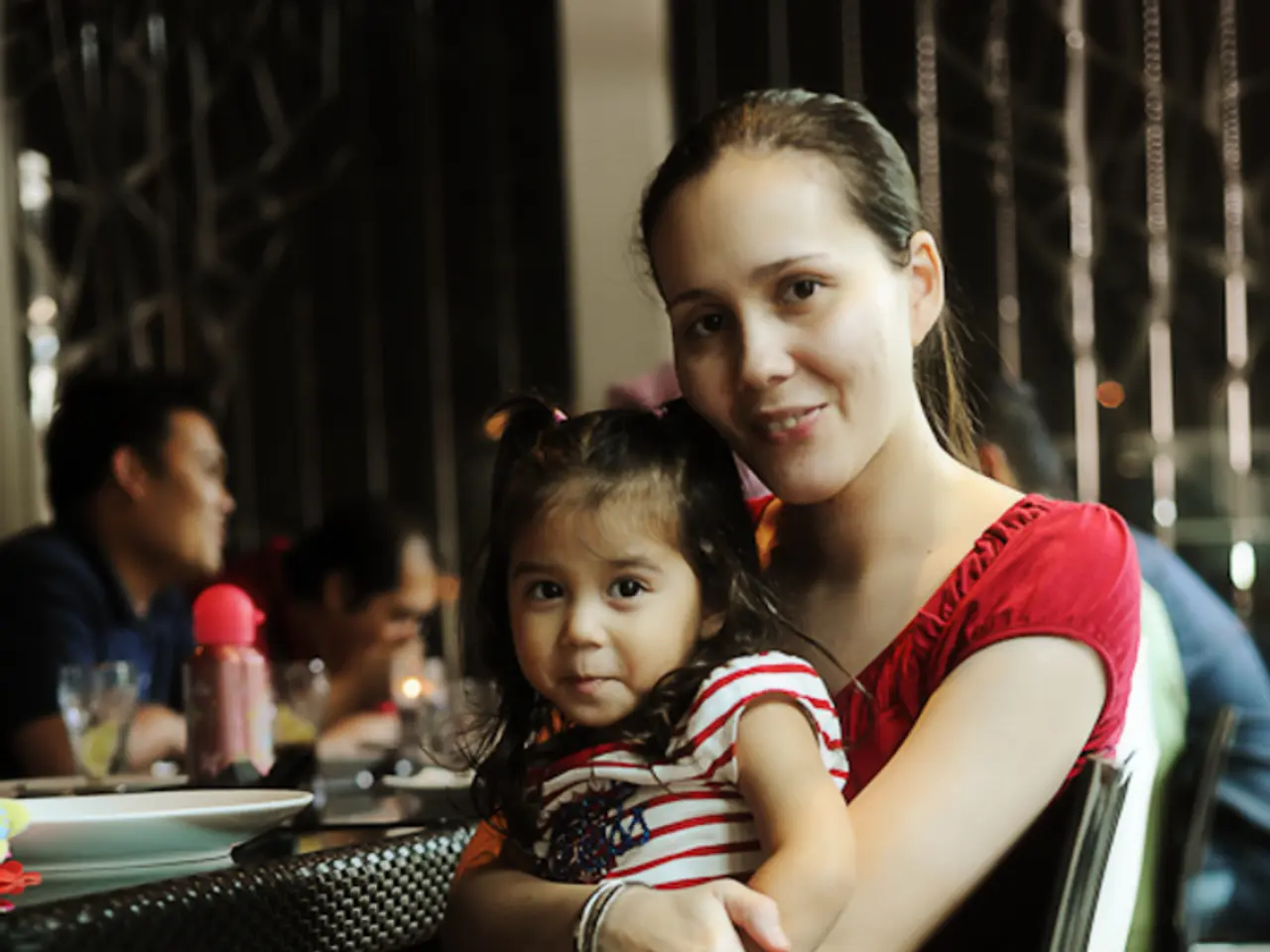Are men physiologically capable of carrying and giving birth to a child?
In a world where gender is more fluid than biological sex, it's essential to address the unique challenges faced by transgender men and nonbinary individuals assigned female at birth (AFAB) when it comes to fertility and pregnancy.
Hormone Replacement Therapy (HRT) is a common part of the transition process for many transgender men and nonbinary AFAB individuals. Testosterone-based HRT can impact fertility by suppressing ovulation and menstruation, but it does not guarantee complete infertility. There are documented cases of pregnancy among transgender men even after hormone therapy, and fertility can sometimes be regained after stopping HRT for a period of time.
However, options such as egg (oocyte) or embryo cryopreservation before starting HRT are often underutilized, particularly among transgender youth. Financial cost and lack of access or awareness present significant barriers to fertility preservation methods.
Access to reproductive healthcare is another crucial factor. Structural barriers such as limited access to knowledgeable healthcare providers, inadequate transgender health care policies, and regional disparities can influence the ability to maintain or regain fertility and access pregnancy-related care.
Pregnancy can trigger gender dysphoria and experiences of misgendering, which may affect reproductive choices and decisions for transgender men and nonbinary AFAB individuals. This emotional burden can influence decisions around attempting pregnancy.
Age and financial barriers also play a significant role. Younger transgender people often face higher financial barriers to fertility preservation and assisted reproductive technologies. Costs for gamete storage and reproductive treatments may be prohibitive, limiting future pregnancy options.
Research indicates some immune cell profile differences in transgender men on testosterone therapy, which could have unknown effects on reproductive outcomes. However, more research is needed to clarify these implications.
It's important to note that unlike biological sex, genetics do not determine a person's gender. Transgender men and some nonbinary people may be able to get pregnant, despite being born with male reproductive organs. In a 2014 study, 20% of transgender men and gender nonconforming AFAB individuals who used testosterone before pregnancy became pregnant before their menstrual cycle returned.
The uterus is the organ where the fetus develops. Male reproductive organs include testicles and a penis but no uterus. Prior testosterone use may increase the chance of placental abruption, preterm labor, anemia, and hypertension during pregnancy. However, a 2014 study found no significant differences in pregnancy, delivery, or birth outcomes due to prior testosterone use.
Gender-affirming surgical procedures for transgender men include male chest reduction, hysterectomy, phalloplasty, and metoidioplasty. If a person has undergone a partial hysterectomy, it is possible for the fertilized egg to latch onto the fallopian tubes or the abdomen, resulting in an ectopic pregnancy, although this is exceedingly rare.
In conclusion, the ability for transgender men and nonbinary AFAB individuals to become pregnant depends on a complex interplay of biological factors influenced by hormone therapies, access to fertility preservation and reproductive healthcare, psychosocial aspects including gender dysphoria, and socioeconomic barriers such as cost and healthcare availability. It remains important for healthcare providers and patients to be well-informed about fertility options and the variable impacts of hormone therapies on reproductive potential.
- Transgender men and nonbinary individuals assigned female at birth (AFAB) undergo Hormone Replacement Therapy (HRT) as part of their transition process, with testosterone-based HRT potentially impacting fertility by suppressing ovulation and menstruation.
- Pregnancy among transgender men is documented even after hormone therapy, and fertility can sometimes be regained after stopping HRT for a period of time.
- Egg or embryo cryopreservation before starting HRT is underutilized, especially among transgender youth, due to financial costs, lack of access, and awareness.
- Reproductive healthcare access is crucial, but structural barriers such as limited knowledgeable healthcare providers, inadequate policies, and regional disparities can influence the ability to maintain or regain fertility and access pregnancy-related care.
- Pregnancy can trigger gender dysphoria and misgendering experiences, which may affect reproductive choices and decisions for transgender men and nonbinary AFAB individuals.
- Age and financial barriers are significant; younger transgender people often face higher financial barriers to fertility preservation and assisted reproductive technologies.
- Research indicates some immune cell profile differences in transgender men on testosterone therapy, which could have unknown effects on reproductive outcomes, necessitating further investigation.
- Contrary to the belief, genetics do not determine a person's gender, and transgender men and some nonbinary people may be able to get pregnant, despite being born with male reproductive organs.
- The uterus is the organ where the fetus develops, and male reproductive organs include testicles and a penis but no uterus. Prior testosterone use may increase the chance of complications during pregnancy.
- Gender-affirming surgical procedures for transgender men may result in ectopic pregnancies if a person has undergone a partial hysterectomy.
- Scientific research and understanding of the impacts of hormone therapies on reproductive potential is evolving, necessitating ongoing study and dialog in health-and-wellness, sexual-health, mental-health, and women's-health fields.
- Pharmaceutical companies like Pfizer play a role in developing treatments and medications beyond HRT for transgender individuals, potentially helping advance reproductive health options.
- In regard to the unique challenges faced by transgender men and nonbinary AFAB individuals when it comes to fertility and pregnancy, it is essential to prioritize research, education, healthcare access, and psychosocial support to promote overall well-being.




